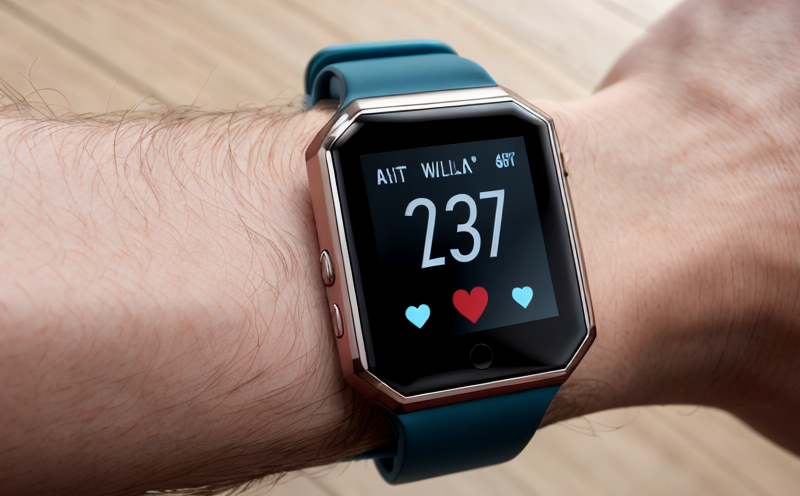Signal Integrity Testing for Wearable Sensor Systems
Signal integrity testing is critical in ensuring that wearable sensor systems function reliably and consistently. In this context, signal integrity refers to the quality of a signal over its entire transmission path from source to destination. For wearable sensor systems, which are increasingly used in medical, fitness, and consumer electronics sectors, maintaining high-quality signals ensures accurate data collection and interpretation. This testing is particularly important as these devices often operate under harsh conditions that can degrade electrical signals. Signal integrity issues can arise due to a variety of factors including electromagnetic interference (EMI), crosstalk between adjacent wires or traces, poor grounding, and insufficient shielding. To mitigate these challenges, comprehensive signal integrity tests are essential during the design phase and post-manufacturing quality control checks. These tests help identify potential problems early in development cycles, ensuring that products meet stringent regulatory requirements such as those outlined by the FDA, IEC, and ISO. The testing process typically involves several key steps:- Signal generation: Creating test signals to simulate real-world conditions.
- Transmission through the device: Monitoring signal quality during this phase.
- Measurement of output: Comparing actual performance against expected outcomes.
- Data analysis: Identifying discrepancies and areas needing improvement.
Applied Standards
| Standard | Description |
|---|---|
| IEC 60601-2-30 | This standard specifies the requirements for electrical and electronic safety in medical devices, including those used within wearable sensor systems. |
| IEEE 1541 | A guideline for power factor correction factors that can indirectly impact signal integrity by ensuring stable power supplies to sensors. |
Scope and Methodology
| Aspect | Description |
|---|---|
| Test Equipment | We utilize state-of-the-art oscilloscopes, logic analyzers, and signal generators to perform comprehensive evaluations. |
| Data Analysis Tools | Advanced software solutions are employed for thorough analysis of collected data points. |
| Environmental Conditions | The tests account for typical environmental stresses like temperature, humidity, and vibration to mimic real-world usage scenarios. |
Environmental and Sustainability Contributions
- We minimize waste generation by reusing test equipment whenever possible.
- Eco-friendly practices in our laboratories contribute to reducing energy consumption through efficient HVAC systems.
Frequently Asked Questions
Why is signal integrity testing important for wearable sensors?
Signal integrity testing ensures reliable data collection and interpretation, which are crucial for the accurate functioning of wearable sensor systems. Without proper testing, even minor signal degradation could lead to inaccurate readings or system failures.
What kind of equipment do you use during these tests?
Our testing suite includes oscilloscopes, logic analyzers, and signal generators. These tools allow us to simulate various real-world conditions accurately.
How long does a typical test take?
The duration varies depending on the complexity of the device being tested but generally ranges from several hours up to a full day for more intricate systems.
Do you offer training alongside your testing services?
Yes, we provide workshops and seminars on best practices in signal integrity testing. These sessions are designed to enhance the knowledge base of our clients' teams.
Can you test custom devices?
Absolutely! We have experience working with a wide range of wearable sensor systems, including those that are not yet commercially available. Our services can accommodate unique design requirements.
What certifications do you hold?
We maintain ISO 9001 certification for quality management systems and comply with IEC standards for medical device testing. These recognitions underscore our commitment to excellence.
How do you handle confidential information?
Security is paramount, so we adhere strictly to data protection protocols and maintain strict confidentiality agreements with all clients.
Are there any additional costs associated with your services?
Typically no; however, specific charges may apply for custom configurations or extended periods of testing. Our pricing structure is transparent and clearly outlined upfront.





